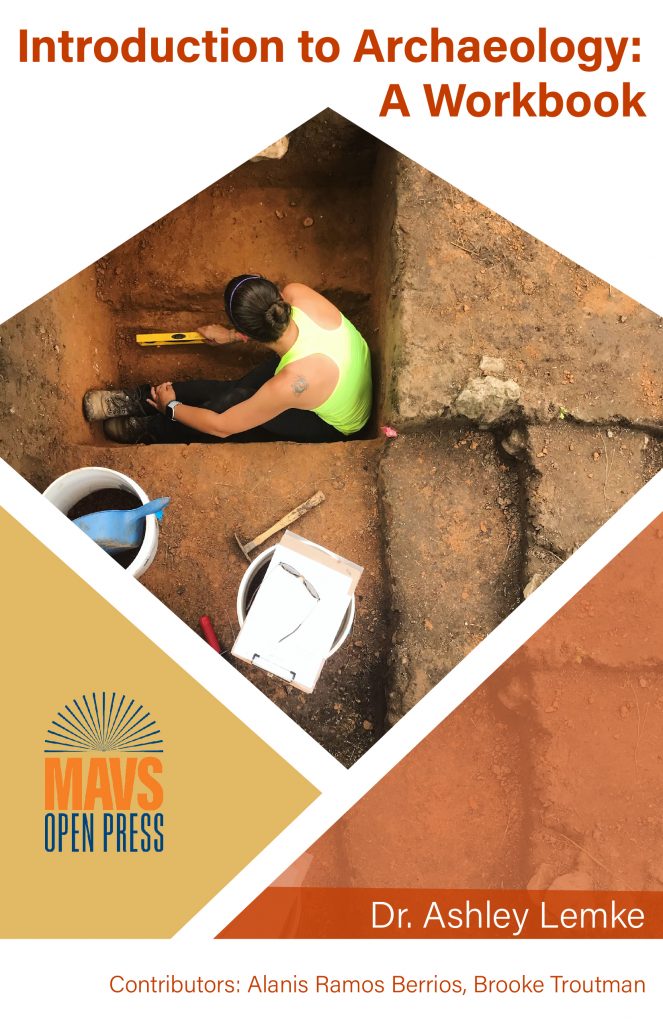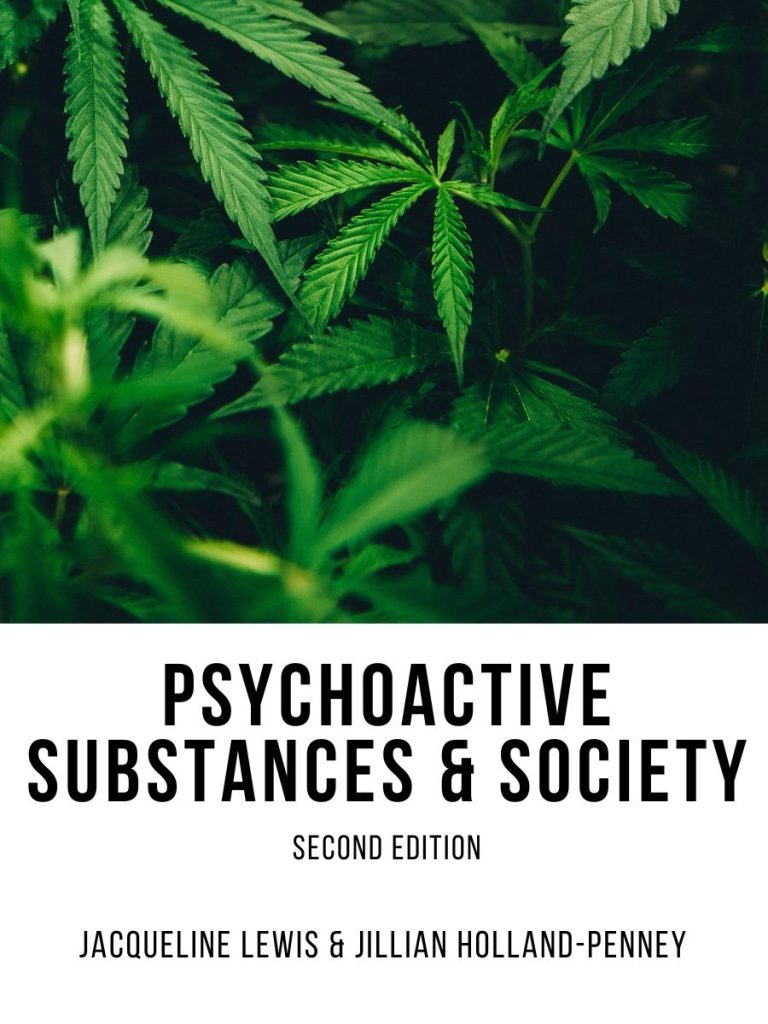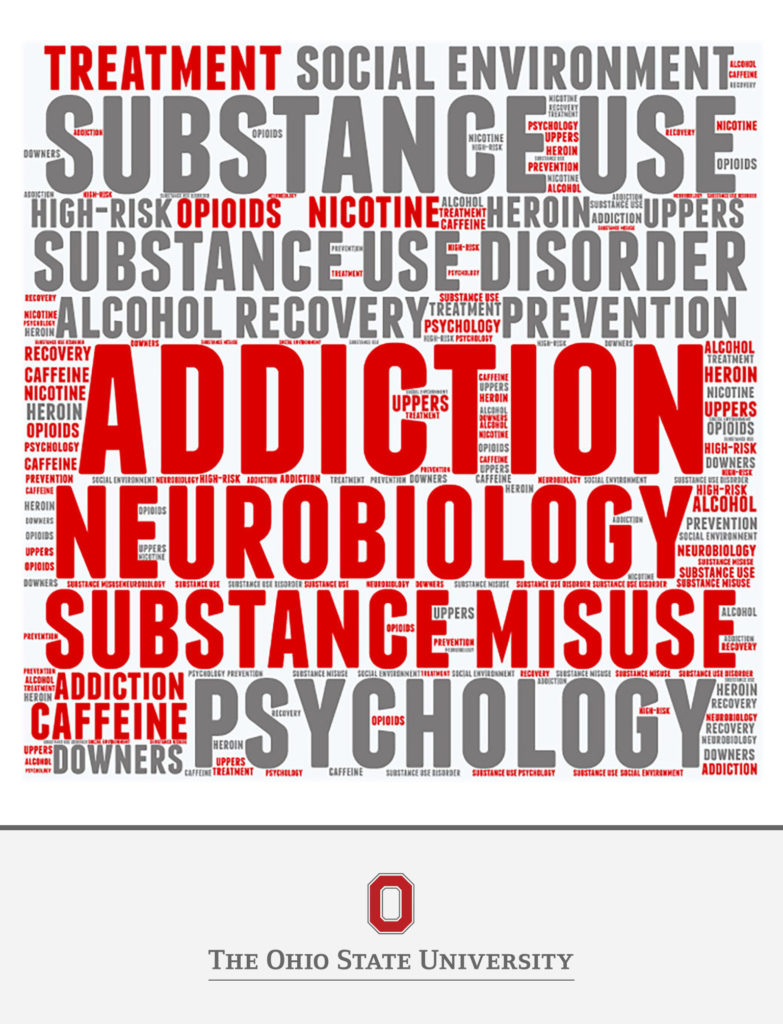- Find Information
- Research Guides
- OER for Core Curriculum
OER for Core Curriculum
Open educational resources for UTSA's core curriculum
- Getting Started: Finding OER Toggle Dropdown
- Evaluating OER
- American History
- Communication
- Component Area Option
- Creative Arts Toggle Dropdown
- First Year Experience
- Government-Political Science
- Language, Philosophy and Culture Toggle Dropdown
- Life and Physical Sciences Toggle Dropdown
- Mathematics
- Social and Behavioral Sciences
ANT 1013
Introduction to Anthropology
-
The History of Our Tribe by Barbara Welker; Keenan Taylor (Illustrator)
ISBN: 9781942341406Publication Date: 2017-06-13Where did we come from? What were our ancestors like? Why do we differ from other animals? How do scientists trace and construct our evolutionary history? The History of Our Tribe: Hominini provides answers to these questions and more. The book explores the field of paleoanthropology past and present. Beginning over 65 million years ago, Welker traces the evolution of our species, the environments and selective forces that shaped our ancestors, their physical and cultural adaptations, and the people and places involved with their discovery and study. It is designed as a textbook for a course on Human Evolution but can also serve as an introductory text for relevant sections of courses in Biological or General Anthropology or general interest. It is both a comprehensive technical reference for relevant terms, theories, methods, and species and an overview of the people, places, and discoveries that have imbued paleoanthropology with such fascination, romance, and mystery. -
Introduction to Anthropology by Jennifer Hasty; David G. Lewis; Marjorie M. Snipes
ISBN: 9781951693992Publication Date: 2022-02-23Designed to meet the scope and sequence of your course, OpenStax Introduction to Anthropology is a four-field text integrating diverse voices, engaging field activities, and meaningful themes like Indigenous experiences and social inequality to engage students and enrich learning. The text showcases the historical context of the discipline, with a strong focus on anthropology as a living and evolving field. There is significant discussion of recent efforts to make the field more diverse—in its practitioners, in the questions it asks, and in the applications of anthropological research to address contemporary challenges. In addressing social inequality, the text drives readers to consider the rise and impact of social inequalities based on forms of identity and difference (such as gender, ethnicity, race, and class) as well as oppression and discrimination. The contributors to and dangers of socioeconomic inequality are fully addressed, and the role of inequality in social dysfunction, disruption, and change is noted. -
Native Peoples of North America by Susa Stebbins
ISBN: 9781942341024Publication Date: 2013-10-23Native Peoples of North America is intended to be an introductory text about the Native peoples of North America (primarily the United States and Canada) presented from an anthropological perspective. As such, the text is organized around anthropological concepts such as language, kinship, marriage and family life, political and economic organization, food getting, spiritual and religious practices, and the arts. Prehistoric, historic and contemporary information is presented. Each chapter begins with an example from the oral tradition that reflects the theme of the chapter. The text includes suggested readings, videos and classroom activities.
ANT 2043
Introduction to Archaeology
-
 Digging into Archaeology: A Brief OER Introduction to Archaeology with Activities
by
Amanda Walcott Paskey, AnnMarie Beasley Cisneros
Publication Date: 2020This book is intended for use in a variety of introductory archaeology settings, such as in lectures and lab courses. This text can complement an existing traditional text or completely replace a standard text. It can be used for its activities or as a study resource. When we wrote this text, we designed the chapters to be brief, providing concise and to-the-point information. This book is not intended to replace lectures or direct instruction from an instructor; rather, it supports learning in a variety of settings and formats. The book can be printed in whole, read digitally, or used piecemeal in either format. However you use this text, we hope that you find it serves as an instructive learning tool and that you dig archaeology as much as we do!
Digging into Archaeology: A Brief OER Introduction to Archaeology with Activities
by
Amanda Walcott Paskey, AnnMarie Beasley Cisneros
Publication Date: 2020This book is intended for use in a variety of introductory archaeology settings, such as in lectures and lab courses. This text can complement an existing traditional text or completely replace a standard text. It can be used for its activities or as a study resource. When we wrote this text, we designed the chapters to be brief, providing concise and to-the-point information. This book is not intended to replace lectures or direct instruction from an instructor; rather, it supports learning in a variety of settings and formats. The book can be printed in whole, read digitally, or used piecemeal in either format. However you use this text, we hope that you find it serves as an instructive learning tool and that you dig archaeology as much as we do! -
 Introduction to Archaeology: A Workbook
by
Ashley Lemke
Publication Date: 2020Introduction to Archaeology: A Workbook, is designed to assist professors, instructors, and students in introductory level archaeology courses by providing questions and assignments to reinforce what is learned and discussed in classroom lectures and through other materials.
Introduction to Archaeology: A Workbook
by
Ashley Lemke
Publication Date: 2020Introduction to Archaeology: A Workbook, is designed to assist professors, instructors, and students in introductory level archaeology courses by providing questions and assignments to reinforce what is learned and discussed in classroom lectures and through other materials.
ANT 2053
Introduction to Cultural Anthropology
-
Perspectives by Nina Brown (Editor); Laura Tubelle de Gonzalez (Editor); Thomas McIlwraith (Editor)
ISBN: 9781931303552Publication Date: 2018-04-13We are delighted to bring to you this novel textbook, a collection of chapters on the essential topics in cultural anthropology. Different from other introductory textbooks, this book is an edited volumewith each chapter written by a different author. Each author has written from their experiences
working as an anthropologist and that personal touch makes for an accessible introduction to culturalanthropology. -
The Art of Being Human by Michael Wesch
ISBN: 9781944548131Publication Date: 2018-08-30Anthropology is the study of all humans in all times in all places. But it is so much more than that. "Anthropology requires strength, valor, and courage," Nancy Scheper-Hughes noted. "Pierre Bourdieu called anthropology a combat sport, an extreme sport as well as a tough and rigorous discipline. It teaches students not to be afraid of getting one's hands dirty, to get down in the dirt, and to commit yourself, body and mind. Susan Sontag called anthropology a "heroic" profession." What is the payoff for this heroic journey? You will find ideas that can carry you across rivers of doubt and over mountains of fear to find the the light and life of places forgotten. Real anthropology cannot be contained in a book. You have to go out and feel the world's jagged edges, wipe its dust from your brow, and at times, leave your blood in its soil. In this unique book, Dr. Michael Wesch shares many of his own adventures of being an anthropologist and what the science of human beings can tell us about the art of being human. This special first draft edition is a loose framework for more and more complete future chapters and writings. It serves as a companion to anth101.com, a free and open resource for instructors of cultural anthropology.
ECO 2003
Economic Principles & Issues
-
Principles of Economics 2e by Steven A. Greenlaw; David Shapiro
ISBN: 9781947172364Publication Date: 2017-10-11Principles of Economics 2e covers the scope and sequence of most introductory economics courses. The text includes many current examples, which are handled in a politically equitable way. The outcome is a balanced approach to the theory and application of economics concepts. The second edition has been thoroughly revised to increase clarity, update data and current event impacts, and incorporate the feedback from many reviewers and adopters. -
 Principles of Political Economy
by
Daniel E. Saros
Publication Date: 2019This textbook is unique among economics textbooks. It contains many of the same topics as mainstream textbooks, but it includes and takes very seriously heterodox critiques and alternatives to the mainstream approach to economics. It includes a whole range of alternative theories, including Post-Keynesian, Austrian, Marxian, radical, feminist, institutionalist, and other approaches. The purpose is to teach students about alternative schools of economic thought but also to deepen their understanding of the dominant, neoclassical approach to economics. In this sense, it draws a great deal of inspiration from Richard Wolff and Stephen Resnick’s Contending Economic Theories. Following Wolff and Resnick, an even broader objective is to teach students that economics is a discourse and that no single voice can rightfully claim to have a monopoly on the truth about economics.
Principles of Political Economy
by
Daniel E. Saros
Publication Date: 2019This textbook is unique among economics textbooks. It contains many of the same topics as mainstream textbooks, but it includes and takes very seriously heterodox critiques and alternatives to the mainstream approach to economics. It includes a whole range of alternative theories, including Post-Keynesian, Austrian, Marxian, radical, feminist, institutionalist, and other approaches. The purpose is to teach students about alternative schools of economic thought but also to deepen their understanding of the dominant, neoclassical approach to economics. In this sense, it draws a great deal of inspiration from Richard Wolff and Stephen Resnick’s Contending Economic Theories. Following Wolff and Resnick, an even broader objective is to teach students that economics is a discourse and that no single voice can rightfully claim to have a monopoly on the truth about economics.
-
Principles of Economics 2e Instructor Resources OpenStaxIncludes a getting started guide, sample syllabus language, instructor solution guide, supplemental test items, Powerpoint slides, iBooks comp copy assessment bank, and more. Must register for a faculty login to access.
ECO 2023
Introductory Microeconomics
-
Principles of Microeconomics 2e by Steven A. Greenlaw; David Shapiro
ISBN: 9781947172340Publication Date: 2022Principles of Microeconomics covers the scope and sequence of most introductory microeconomics courses. The text includes many current examples, which are handled in a politically equitable way. The outcome is a balanced approach to the theory and application of economics concepts. -
Principles of Microeconomics for AP® Courses 2e by Steven A. Greenlaw; David Shapiro; Timothy Taylor
ISBN: 9781947172449Publication Date: 2020-01-21Principles of Microeconomics for AP® Courses 2e covers the scope and sequence requirements for an Advanced Placement® microeconomics course and is listed on the College Board’s AP® example textbook list. The second edition includes many current examples and recent data from FRED (Federal Reserve Economic Data), which are presented in a politically equitable way. The outcome is a balanced approach to the theory and application of economics concepts.
The second edition was developed with significant feedback from current users. In nearly all chapters, it follows the same basic structure of the first edition. General descriptions of the edits are provided in the preface, and a chapter-by-chapter transition guide is available for instructors. -
 Principles of Political Economy
by
Daniel E. Saros
Publication Date: 2019This textbook is unique among economics textbooks. It contains many of the same topics as mainstream textbooks, but it includes and takes very seriously heterodox critiques and alternatives to the mainstream approach to economics. It includes a whole range of alternative theories, including Post-Keynesian, Austrian, Marxian, radical, feminist, institutionalist, and other approaches. The purpose is to teach students about alternative schools of economic thought but also to deepen their understanding of the dominant, neoclassical approach to economics. In this sense, it draws a great deal of inspiration from Richard Wolff and Stephen Resnick’s Contending Economic Theories. Following Wolff and Resnick, an even broader objective is to teach students that economics is a discourse and that no single voice can rightfully claim to have a monopoly on the truth about economics.
Principles of Political Economy
by
Daniel E. Saros
Publication Date: 2019This textbook is unique among economics textbooks. It contains many of the same topics as mainstream textbooks, but it includes and takes very seriously heterodox critiques and alternatives to the mainstream approach to economics. It includes a whole range of alternative theories, including Post-Keynesian, Austrian, Marxian, radical, feminist, institutionalist, and other approaches. The purpose is to teach students about alternative schools of economic thought but also to deepen their understanding of the dominant, neoclassical approach to economics. In this sense, it draws a great deal of inspiration from Richard Wolff and Stephen Resnick’s Contending Economic Theories. Following Wolff and Resnick, an even broader objective is to teach students that economics is a discourse and that no single voice can rightfully claim to have a monopoly on the truth about economics.
-
Principals of Microeconomicsfor AP Courses 2e Instructor Resources OpenStaxIncludes a getting started guide, sample syllabus language, instructor solution guide, supplemental test items, PowerPoint slides, iBooks comp copy assessment bank, and more. Must register for a faculty login to access.
-
Principles of Microeconomics 2e Instructor Resources OpenStaxIncludes a getting started guide, sample syllabus language, instructor solution guide, supplemental test items, Powerpoint slides, iBooks comp copy assessment bank, and more. Must register for a faculty login to access.
ES 1003
Survey Topics in Enviormental Studies
-
 Environmental Studies: From New Jersey to the Globe
by
Mark Yuschak, Viveca Sulich
Publication Date: 2023Welcome to “Environmental Studies: From New Jersey to the Globe,” an open educational resource designed to provide students with a comprehensive and engaging overview of the environmental challenges facing society internationally. Portions of the text will also focus on environmental issues in New Jersey, one of the most ecologically diverse and densely populated states in the United States. This resource aims to empower students with knowledge about the intricate relationship between human activities and the natural world, fostering a deeper understanding of the environmental issues that shape the local and global landscapes. With this background, students will develop the tools necessary to critically analyze any environmental issue they are interested in and make informed choices about their own lifestyles.
Environmental Studies: From New Jersey to the Globe
by
Mark Yuschak, Viveca Sulich
Publication Date: 2023Welcome to “Environmental Studies: From New Jersey to the Globe,” an open educational resource designed to provide students with a comprehensive and engaging overview of the environmental challenges facing society internationally. Portions of the text will also focus on environmental issues in New Jersey, one of the most ecologically diverse and densely populated states in the United States. This resource aims to empower students with knowledge about the intricate relationship between human activities and the natural world, fostering a deeper understanding of the environmental issues that shape the local and global landscapes. With this background, students will develop the tools necessary to critically analyze any environmental issue they are interested in and make informed choices about their own lifestyles.
GES 1013
Fundamentals of Geography
-
 Essentials of Geographic Information Systems
by
Jonathan Campbell, MIchael Shin
ISBN: 9781453321966Publication Date: 2011Essentials of Geographic Information Systems integrates key concepts behind the technology with practical concerns and real-world applications. Recognizing that many potential GIS users are nonspecialists or may only need a few maps, this book is designed to be accessible, pragmatic, and concise. Essentials of Geographic Information Systems also illustrates how GIS is used to ask questions, inform choices, and guide policy. From the melting of the polar ice caps to privacy issues associated with mapping, this book provides a gentle, yet substantive, introduction to the use and application of digital maps, mapping, and GIS.
Essentials of Geographic Information Systems
by
Jonathan Campbell, MIchael Shin
ISBN: 9781453321966Publication Date: 2011Essentials of Geographic Information Systems integrates key concepts behind the technology with practical concerns and real-world applications. Recognizing that many potential GIS users are nonspecialists or may only need a few maps, this book is designed to be accessible, pragmatic, and concise. Essentials of Geographic Information Systems also illustrates how GIS is used to ask questions, inform choices, and guide policy. From the melting of the polar ice caps to privacy issues associated with mapping, this book provides a gentle, yet substantive, introduction to the use and application of digital maps, mapping, and GIS.
GES 2623
Human Geography
-
 Human Geography
by
Christine Rosenfeld, Nathan Burtch
Welcome to Human Geography! If you are interested in how humans interact with the environment and how human systems are geographically distributed over space, then you’ve found your place.
Human Geography
by
Christine Rosenfeld, Nathan Burtch
Welcome to Human Geography! If you are interested in how humans interact with the environment and how human systems are geographically distributed over space, then you’ve found your place.
SOC 2023
Social Context of Drug Use
-
Drug Use and Misuse by Christy Bazan; Brandi Barnes; Ryan Santens; Emily Verone; Janet Swatscheno (Technical editor); Heejoung Shin (Technical editor)
ISBN: 9781946011152Publication Date: 2022-05-11Drug Use and Misuse: A Community Health Perspective provides students with an introduction to the biological, psychological, and legal aspects of drug use and misuse through the lens of community health and discusses the impact of drug use and misuse on community health. The book contains eight distinct chapters addressing the background of drug use and misuse, including key terms, as well as an introduction to different categories of drugs including gateway drugs, opioids, and prescription drugs, and a conclusion that describes evidence-based prevention and treatment models. Originally developed for use in the popular undergraduate survey course “Drug Use and Abuse” taught at the University of Illinois Urbana-Champaign, the book is aimed at students learning about community health and the effects of drug use in a variety of contexts, such as survey courses for pharmacology, psychology, or public health. -
 Psychoactive Substances & Society, 2nd Edition
by
Jacqueline Lewis, Jillian Holland-Penney
Publication Date: 2024This open educational resource is developed as a third-year level, university course on psychoactive drugs and Society. The second edition of Psychoactive Substances Use & Social Policy uses a revised and abbreviated title (Psychoactive Substances & Society) and is updated and enhanced. It includes a syllabus, 12 weeks of digital course content with assignments, and a grading rubric. It can be adapted as a stand-alone or supplemental course package, or single chapters can also be incorporated into courses on related topics. The course is designed so that it can be taught in several ways: as a fully online asynchronous course, or as a flipped learning hybrid course combining asynchronous learning via the Pressbook content, with face-to-face class and small group discussion (either online or in person). Course materials innovatively combine chapter content, with embedded links to audio/video material and short readings. A set of required additional readings are included at the end of each chapter. Materials come from a variety of sources (e.g., scholarly publications, government and non-governmental reports, the Conversation, media reports, other internet content, etc.). Each chapter starts with several questions for students to think about as they complete the chapter materials and ends with an assignment. All course materials (readings, viewings, questions, and assignments) are designed to stimulate critical and personal reflection on complex and challenging issues tied to course topic. Chapter assignments can be assigned as individual or group projects (face-to-face or via synchronous breakout groups during class time) or some combination of the two. The questions at the start of each chapter can also be used to guide class discussion.
Psychoactive Substances & Society, 2nd Edition
by
Jacqueline Lewis, Jillian Holland-Penney
Publication Date: 2024This open educational resource is developed as a third-year level, university course on psychoactive drugs and Society. The second edition of Psychoactive Substances Use & Social Policy uses a revised and abbreviated title (Psychoactive Substances & Society) and is updated and enhanced. It includes a syllabus, 12 weeks of digital course content with assignments, and a grading rubric. It can be adapted as a stand-alone or supplemental course package, or single chapters can also be incorporated into courses on related topics. The course is designed so that it can be taught in several ways: as a fully online asynchronous course, or as a flipped learning hybrid course combining asynchronous learning via the Pressbook content, with face-to-face class and small group discussion (either online or in person). Course materials innovatively combine chapter content, with embedded links to audio/video material and short readings. A set of required additional readings are included at the end of each chapter. Materials come from a variety of sources (e.g., scholarly publications, government and non-governmental reports, the Conversation, media reports, other internet content, etc.). Each chapter starts with several questions for students to think about as they complete the chapter materials and ends with an assignment. All course materials (readings, viewings, questions, and assignments) are designed to stimulate critical and personal reflection on complex and challenging issues tied to course topic. Chapter assignments can be assigned as individual or group projects (face-to-face or via synchronous breakout groups during class time) or some combination of the two. The questions at the start of each chapter can also be used to guide class discussion. -
 Theories and Biological Basis of Substance Misuse, Part 1
by
Audrey Begun
Theories and Biological Basis of Substance Misuse Part 1 (2019) is an OER coursebook applying a biopsychosocial lens for educating an interdisciplinary professional workforce to identify, understand, and address problems related to substance use, substance misuse, and substance use disorders. These materials were developed using a variety of published sources and online materials, including resources produced by U.S. National Institutes of Health (NIH), National Institute on Alcoholism and Alcohol Abuse (NIAAA), National Institute on Drug Abuse (NIDA), and Substance Abuse and Mental Health Services Administration (SAMHSA), as well as the World Health Organization (WHO) and the Routledge Handbook of Social Work and Addictive Behavior (2020), edited by A.L. Begun and M.M. Murray. A total of 6 modules are presented in this Part 1 coursebook; an additional 7 modules specific to different types of substances, co-occurring problems, prescription and over-the-counter substance misuse, and pharmacotherapy strategies appear in Theories and Biological Basis of Substance Misuse Part 2 (2020).
Theories and Biological Basis of Substance Misuse, Part 1
by
Audrey Begun
Theories and Biological Basis of Substance Misuse Part 1 (2019) is an OER coursebook applying a biopsychosocial lens for educating an interdisciplinary professional workforce to identify, understand, and address problems related to substance use, substance misuse, and substance use disorders. These materials were developed using a variety of published sources and online materials, including resources produced by U.S. National Institutes of Health (NIH), National Institute on Alcoholism and Alcohol Abuse (NIAAA), National Institute on Drug Abuse (NIDA), and Substance Abuse and Mental Health Services Administration (SAMHSA), as well as the World Health Organization (WHO) and the Routledge Handbook of Social Work and Addictive Behavior (2020), edited by A.L. Begun and M.M. Murray. A total of 6 modules are presented in this Part 1 coursebook; an additional 7 modules specific to different types of substances, co-occurring problems, prescription and over-the-counter substance misuse, and pharmacotherapy strategies appear in Theories and Biological Basis of Substance Misuse Part 2 (2020).
